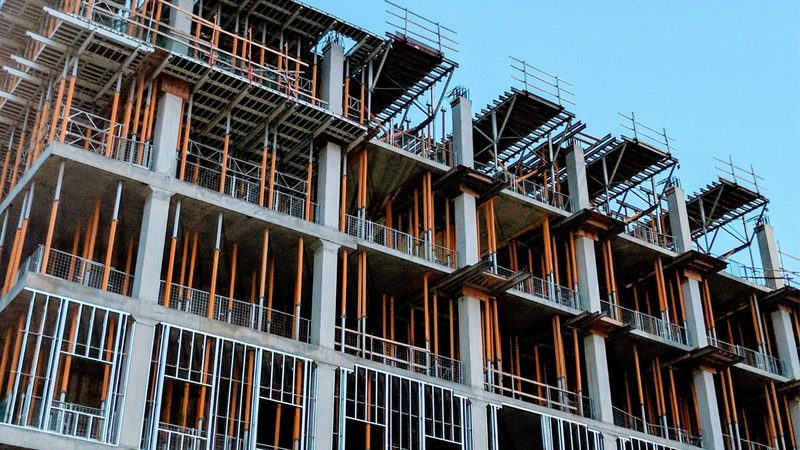The case of VMA Services Ltd v Project One London Ltd [2025] EWHC 1815 (TCC) acts as a further reminder to those seeking to determine the true value of interim payment applications that you must pay any Notified Sum first before referring a true value dispute to adjudication.
Here, Jennie Jones from our construction team looks at the background to the case, the legal issues it concerned and its practical implications for the construction law landscape.
Background & facts
VMA was a subcontractor appointed by Project One around October 2023 for mechanical works under a contract incorporating the JCT D&B Sub-Contract Agreement Conditions 2016. VMA submitted an Application for Payment No. 8 on 21 June 2024 in the sum of £106,434.88 (the Notified Sum) for works completed up to and including 30 June 2024. Project One failed to serve a valid Payment Notice or Pay Less Notice within the required timeframe.
In response, Project One referred a true value dispute to adjudication. VMA argued that the Notified Sum was due in full to VMA. Project One had failed to issue the required notices and thereafter failed to make payment of the Notified Sum — so VMA argued that Project One’s claim for true valuation should be dismissed. The adjudicator agreed and decided that the Notified Sum was due to VMA.
Pay now, argue later
The court upheld the adjudicator’s decision on enforcement, confirming that where an adjudicator has found that sums are due to the responding party in circumstances such as these, the court can and will make an award of those sums to the responding party. A second adjudication to ‘rubber stamp’ the original decision and make an award isn’t required.
This decision underscores strict compliance with notice requirements in construction disputes and reinforces the ‘pay now, argue later’ principle, which mandates timely payments for work performed even if a dispute exists to maintain cash flow and prevent project disruption.
The legal issue
It’s well established through a plethora of caselaw adopting the underlying philosophy of adjudication (for example S&T (UK) Ltd v Grove Developments Ltd [2018] EWCA Civ 2448, M Davenport Builders Ltd v Greer [2019] and AM Construction Ltd v The Darul Amaan Trust [2022] to name a few) that a paying party who hasn’t served a Payment Notice or a Pay Less Notice isn’t entitled to refer a dispute about the true value of a payment application to adjudication prior to making payment of the Notified Sum.
The argument on enforcement centred around whether the adjudicator had jurisdiction to make a monetary award in favour of VMA, the respondent to the adjudication.
The court was asked to balance two potentially conflicting principles of law. First, that a party isn’t able to make a monetary recovery arising from its defence. A cross claim raised by a responding party may offset sums otherwise owing but doesn’t arise as an independent claim for a monetary award. Second, that the overriding aim of the Housing Grants and Construction Regeneration Act 1996 (the Act) is to get payment flowing — so, parties should be required to pay first and argue later.
Four key takeaways
Adrian Williamson, sitting as Deputy Judge in The Technology and Construction Court (TCC), reviewed the relevant case law and held that:
- A party can’t start a true value adjudication before complying with its immediate payment obligation (i.e., paying the Notified Sum arising from a lack of valid notices).
- Project One had failed to serve the necessary notices and therefore the full amount claimed had become immediately due as a Notified Sum. Since payment hadn’t been made, Project One wasn’t entitled to refer the matter to adjudication for a reassessment of the true value.
- It would be entirely artificial to require VMA to start a second adjudication to obtain an award for the Notified Sum where another adjudicator had already decided that the Notified Sum was due. This would frustrate cashflow aims which the Act has put in place.
- Where an adjudicator has found that sums are due to the responding party in circumstances such as those set out above, the court can and will make an award of those sums to the responding party. A second adjudication to ‘rubber stamp’ the original decision and make an award isn’t required.
This decision firmly applied and reinforced the ‘pay now, argue later’ principle at the cornerstone of adjudication and a core tenet of Part II of the Act. The court is generally uninterested in clever arguments on jurisdiction. Where the adjudicator comes to a decision that a Notified Sum is due to the responding party, the court can perfect that decision by making the necessary award.
Practical implications
This case has real practical implications for both employers and main contractors (payers):
- Don’t assume that you can ‘sort it out’ in adjudication at a later date. If you’ve missed the payment notice deadlines, the sum in the application becomes the Notified Sum and is immediately payable.
- If you want to challenge an interim application valuation, you must serve a valid Payment Notice or Pay Less Notice within the specified time periods or be prepared to pay the full amount first then proceed with a true value adjudication.
- Internal contract administration processes should include rigorous notice-tracking systems to avoid unintentional liabilities arising from missed deadlines.
For subcontractors & suppliers (payees):
- A failure by the payer to serve notices puts you in a strong position — whether or not you intend to bring a ‘smash and grab’ adjudication.
- If the payer starts a true value adjudication without paying the Notified Sum, you can defend the true value adjudication and argue that the full Notified Sum is due to you, as VMA successfully did.
'Smash & grab' principles apply
While VMA Services v Project One isn’t a traditional ‘smash and grab’ adjudication, it is a stark reminder that 'smash and grab' principles apply even when raised as a defence. The case reinforces the importance of serving valid notices and the procedural sequencing of payment and adjudication.
You risk the responding party successfully bringing a ‘smash and grab’ defence, resulting in an adjudicator finding that the notified amount is due and owing to the responding party. The court has once again demonstrated its willingness to stand behind the ‘pay now, argue later’ principle.
Talk to us
Our construction team has extensive experience in navigating payment disputes, adjudication procedures and contract administration. We can help you to avoid costly missteps and protect your position.
Talk to us by giving us a call on 0333 004 4488, sending us an email or completing our contact form below.



